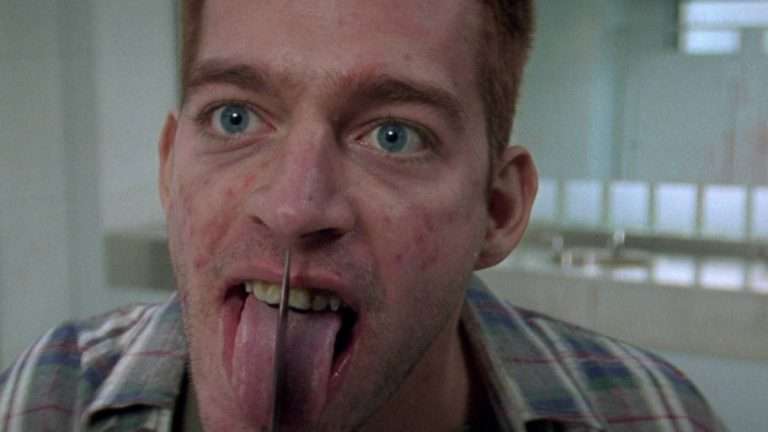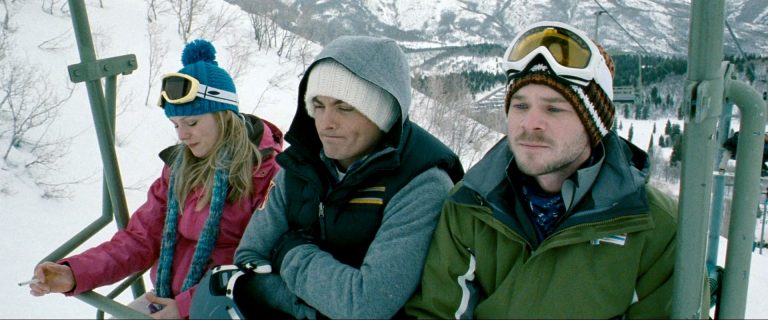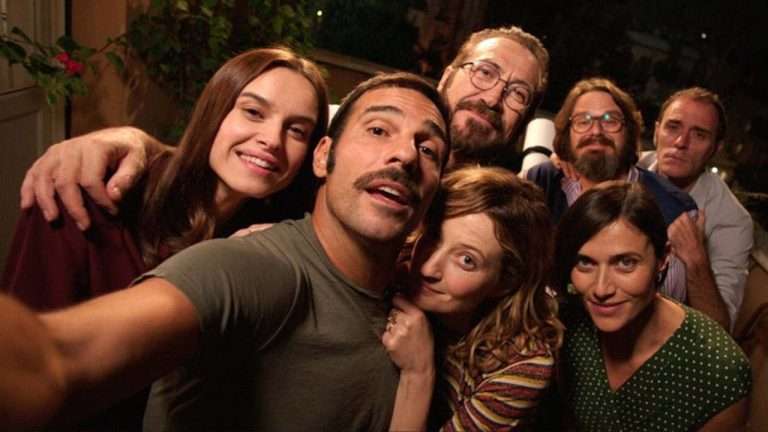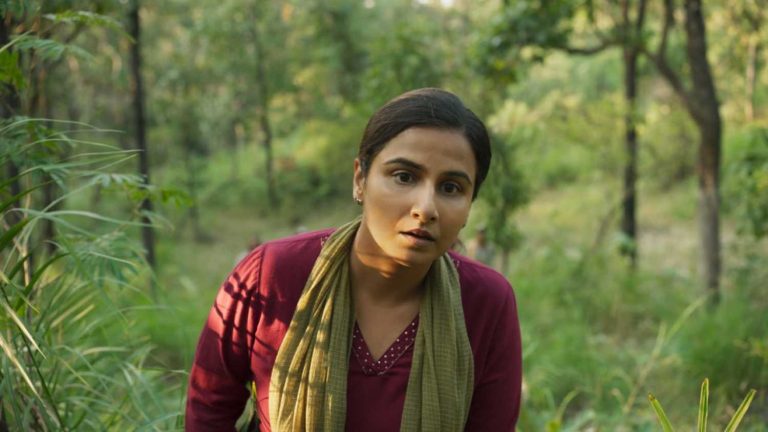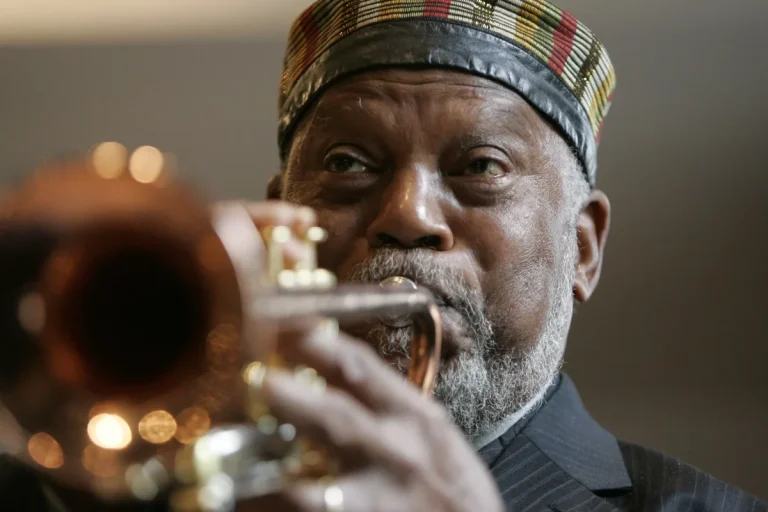Ramon Zürcher centers his film, “The Sparrow in the Chimney,” on a family meet-up. It’s no surprise that the space quickly snowballs into a site where fractious feelings and simmering grudges gain a centrality and propel the emotional trajectory. Karen (Maren Eggert) lives with her family in her childhood home. Her sister, Jule (Britta Hammelstein), is visiting with her husband and kids.
Zürcher builds scenes to the effect of a cloistered family gathering. Resentments between Karen and her children have been simmering for a while. When we enter the film, the fault lines streaking through the family are already pretty glaring. Karen opts to put the lid on things. A lot of open, direct conversation that should have happened much earlier has thereby been repressed.
It’s their air of muffled, suffocating disquiet that the film excels in. There are no grand, overly orchestrated outbursts as such, even if the narrative makes plentiful gestures toward them. As a director who has also written the screenplay, Zürcher is simply not interested in those, veering instead to cull from prickling dynamics latitude for us, the viewer, to explore and intuit flash points of the constant friction on display. Johanna (Lea Zoe Voss) doesn’t miss a chance to tell straight to her mother’s face how much she loathes her, wishing she were dead instead.
She’s the most defiant of the kids. Jule pips in, reminding her niece that she, too, had similar thoughts about her own mother. Everyone goes through those surging, seemingly controllable lashing fits of bitterness. It is almost as if through that stinging line, Johanna is told she’s not some sole, exceptional person who feels so incensed at her mother.
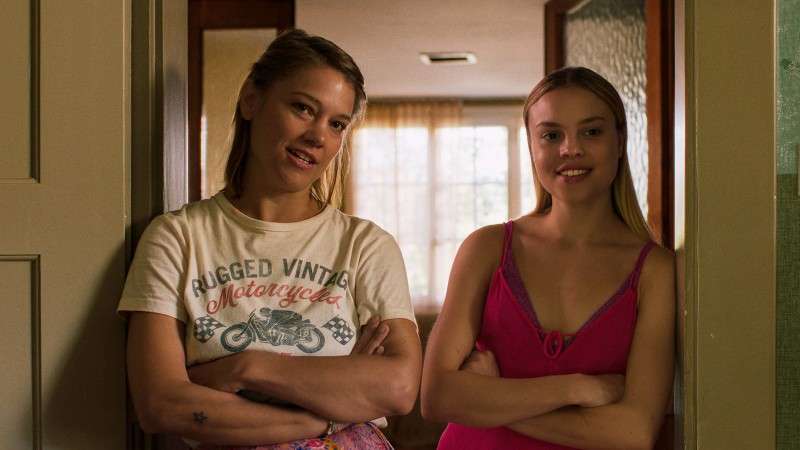
Johanna’s spitefulness bobs up the moment her mother walks into the room. She turns all spiky and vituperative. Since Karen wouldn’t buck, Johanna finds other ways of making herself feel as assertive and boldly as possible. It is the teenage daughter’s way of resisting control. So, she feels perfectly entitled to be risqué, not holding back on being sexually provocative to her uncle, Jurek ( Milian Zerzawy).
Karen is reserved and glacial. However, her sister is animated and perky, with the impulse to confront every icky situation instantly. Karen gives off this immediate impression of containing a churn of emotional and psychological depredation deep within her. Her marriage is in a standoff. She knows perfectly well her husband, Markus (Andreas Döhler), has been cheating on her with the babysitter, Liv (Luise Heyer). She doesn’t express much, but she makes it clear that nothing and no one can escape her gaze. Jule is surprised at her sister’s demeanor, asking her when she became so vicious.
Eggert’s presence in the leading role has a near-spectral touch to it. She has an impassiveness manner; nevertheless, the sternness and forbidding edge to her are unmistakable. Jule wonders why Karen moved back into their childhood home, which hasn’t been a site of pleasant memories for either.
While Karen never shares with her kids stories and anecdotes of their grandparents, Jule’s visit comes bearing with it all that history her sister took care to tuck out. She reveals the bundle of trauma and grief Karen has been letting fester inside her. It is this withholding of Karen whose after-effects took the ugly shape of coloring her relationship with the kids. In a scene where she’s at her most candid, Karen confesses to her sister how she can feel their mother’s presence hovering around her in the house. “You’re gone,” Jule pokes.
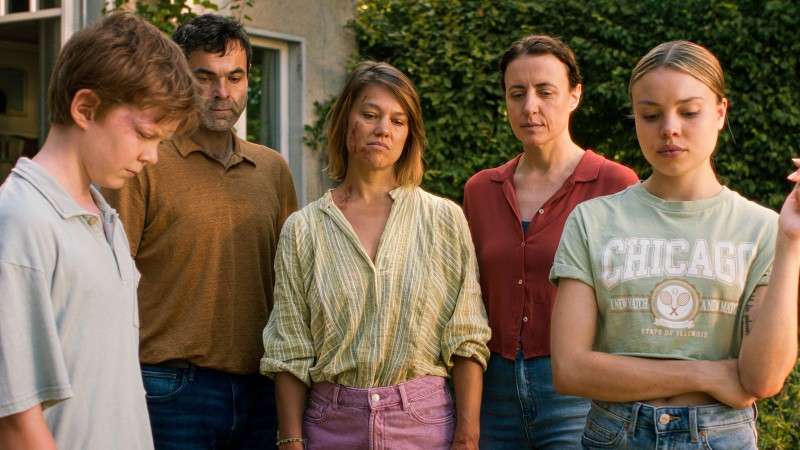
Inevitably, the domestic strains work their way to truly claustrophobic levels. “The Sparrow in the Chimney” swoops on one woman’s steady dissociation from her surroundings. Karen puts up a front of being at a remove. But the revelry and bonhomie can’t help but grate on her nerves. Eggert’s performance has a glassiness. She keeps the cracks in Karen carefully masked beneath an air of chilly distance but is also able to summon, as in a particularly crescendo-like intense sequence, the weight of having internally cooped up a heap of psychological damage that she might have been thinking as irreparable.
She hides it, but the fact is she also yearns for release, as her children do, from the frostiness that has become inseparable from the slightest interaction. Karen barely talks at length to her kids or her husband. She keeps things clipped and brusque, leaving no space for follow-up or expanded dialogue. She emanates this source of constant, potential conflict, or at least that’s how her kids and her husband perceive her.
As in the previous two installments of the “Human Togetherness” trilogy, “The Strange Little Cat” (2011) and “The Girl and the Spider” (2021), this film also has intermittent passages of stylized punctuation, cutting out the dialogue in a swell of music. While the previous films in those specific moments circled the mundane objects in the household, here it’s more movement-oriented. “The Sparrow in the Chimney” makes these flourishes segue effortlessly into the everyday, culminating in a dazzling, richly mysterious sequence that indicates Karen crossing over to the other side, beyond trauma, and toward healing.
Zürcher concludes his film on a note of grace and transcendence, ripping out all that twine of vitiated, sour bonds that threaten to fully erode us if we allow it to stagnate within us. With metaphysical turns, “The Sparrow in the Chimney” is an exquisitely controlled drama whose formal rigor belies sorrow, mystery, and hope.



![Heavy Trip [2018]: Fantasia Film Festival Review](https://79468c92.delivery.rocketcdn.me/wp-content/uploads/2018/07/Heavy-Trip-1-768x432.jpg)
